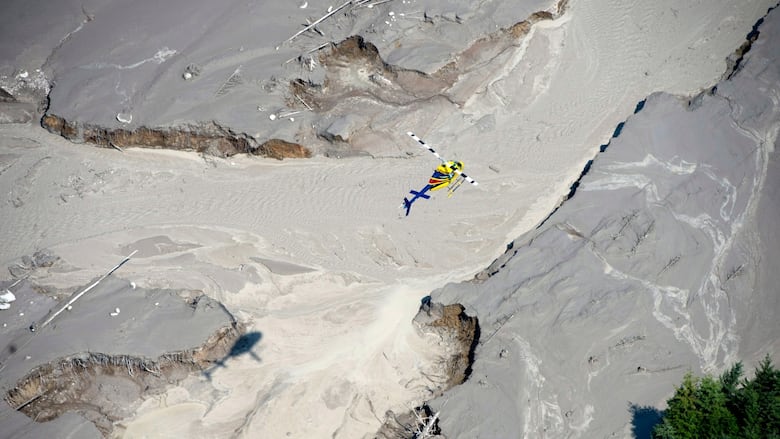B.C. court rejects First Nation's challenge to increase in Mount Polley tailings dam level
The mine was the site of a massive toxic spill when its tailings pond dam collapsed 11 years ago

The B.C. Supreme Court has dismissed a First Nation's bid to stop the level of a tailings dam from being increased at the Mount Polley mine site, which suffered a catastrophic dam collapse that spilled millions of litres of waste and water 11 years ago.
The Xatsull First Nation claimed the province's approval of the plan to raise the level of the dam in B.C.'s Interior by four metres was improper and done without "meaningful" consultation with the nation.
But Justice Michael Tammen ruled Wednesday that the provincial government's consultation with the Xatsull was proper.
"I view the consultation here as deep and, importantly, the process employed by the province provided Xatsull with ample opportunity to present their perspective," Tammen said.
The First Nation said in a statement it was disappointed in the ruling.
"This is the same facility that breached and devastated Xatsull's territory in 2014 — the worst mining disaster on record. Its impacts are still harming our Nation's rights, culture and way of life today," it said.
"We will be reviewing the decision as well as exploring our options to determine next steps."
Mount Polley is an open-pit copper and gold mine located in British Columbia's Cariboo region, 56 kilometres northeast of Williams Lake.
The mining company says the size of the tailings pond needs to be increased to ensure Mount Polley can continue to operate.
"As ore is processed, the resulting ground rock (tailings) is stored in the TSF (tailings storage facility.) To safely accommodate ongoing tailings deposition, the height of the TSF must be gradually increased over time."
Tammen said Mount Polley Mining Corp.'s plan to raise the tailings storage level was "comparatively modest," and the rationale for provincial approval "readily apparent."
The court had been expected to rule on an application for an injunction on Tuesday, with a decision on the nation's judicial review to follow, but Tammen dismissed the Xatsull's legal challenge outright and found no basis to grant an injunction to stop the plan moving ahead.
Tammen said raising the dam as proposed "does not increase the scope of operations at the mine, nor does it increase the ecological footprint of ongoing mining operations."
He said the tailings dam failed "catastrophically" in 2014, which "has in turn caused widespread and long-lasting environmental damage and corresponding impacts to Xatsull's Aboriginal title, rights, culture, and way of life."
"Xatsull is obviously and understandably extremely concerned with the potential for a further failure and thus has a corresponding interest in ensuring that the mine is being operated in an environmentally responsible and safe manner," he said.
He said he didn't want to dismiss, diminish or minimize the "deleterious" effects of the tailings dam failure, which is still the subject of civil litigation and Fisheries Act charges against the company.
Chief Rhonda Phillips said earlier this year that the province was allowing the work to proceed without a valid environmental assessment certificate at the site of the spill that sent millions of tonnes of water and tailings into the environment on the nation's territory.
Phillips had said "meaningful" reform is needed in the aftermath of the 2014 spill because the provincial government is still approving "risky storage methods" while failing to adequately consult the nation.
With files from CBC News

